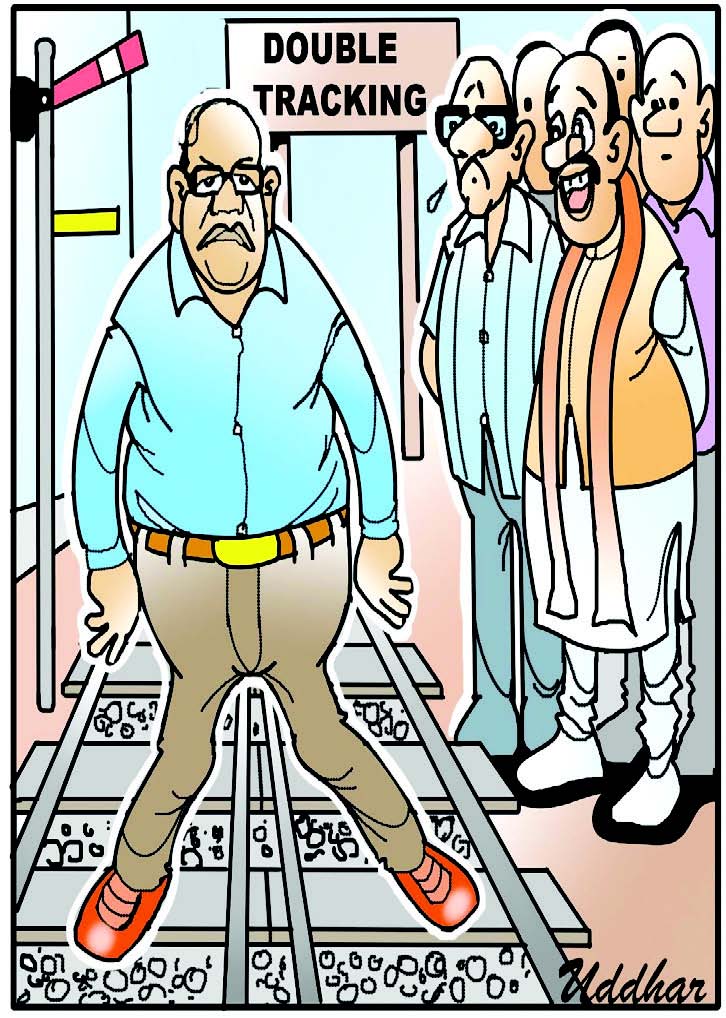Prabhakar Timble
The story of providing a permanent campus for the Indian Institute of Technology (IIT-Goa) continues to stay inconclusive for over six years. It started with the Laxmikant Parsekar-led BJP government offering 225 acres at Dhargal, Pernem which was rejected by the MHRD, which demanded 400 acres. Later, a 5 lakh square metre was identified in the village of Shristhal and Poinguinim in Canacona taluka but the locals raised strong objections. Dr Pramod Sawant led BJP government almost handed over around 10 lakh square metre of land to the IIT at Shel-Melaulim village in Sattari but had to finally retreat due to protest from farmers and inhabitants turning violent.
We are now told that 7.5 lakh square metre at Sanguem will be finally the location of the IIT-Goa campus. The farmers and land losers are protesting with the government unlikely to relent as evident from the deployment of police force at the identified site.
The dance for land
The common thread in this dance for finding an acceptable and peaceful location for an all-India institute of higher learning is the threat of life-long loss of land resource facing the owners or occupiers of land. However, the protestors are hunted as a community opposing a national project.
It is argued that establishment of IIT will open opportunities of employment for locals and also multiply prospects of enterprise in the command area. Further, it is argued that education being a non-polluting activity does not raise any environmental concerns. Those who oppose are sought to be categorised as anti-development.
The critical issue in all land acquisitions by the government is the permanent loss suffered by the land losers. They could be owners, occupiers, inhabitants, cultivators and dependents.
As opposed to this, exactly contrary is the position of those whose lands do not come under the axe of the land acquisition. These groups suddenly get elevated as permanent beneficiaries of the project.
For land losers, it is impoverishment for life. For those who retain their lands, it opens the window of riches for life. If this inequity is answered, the land acquisition will be fair, just and peaceful. Any such land acquisition would be welcomed and accepted.
In the initial years of post-liberation Goa, land acquisitions were not opposed or contested the way they are today. Stakeholders in land have learnt and tasted the bitter pill of this legalised land ‘grabbing’ by the government.
Those whose lands were acquired for industrial estates got peanuts and the owners of lands in the neighbourhood reaped bumper profits. We are a witness to the stories of “rags to riches” of politicians and persons close to power on real estate acquisitions in the periphery of highways and by-pass routes. We are also a witness to politicians building up fortunes as land investors with threatened land acquisitions.
First of all, it needs to be understood that none are opposing the IIT. The assumption that it is the duty of those who have vested interests in the land to permanently surrender their rights and benefits simply because IIT is a premier and prestigious academic institution is erroneous.
Whether IIT or any other institution, it should be also accountable for the quantity of land it requisitions. We have the living examples of requisitioned lands lying idle and unutilised for over 25 years with institutions. Further, the government is one of the biggest ‘zamindar’ already holding idle lands. It continues to top it up with more land acquisitions of small landowners, cultivators and occupiers. There seems to be no accountability of the land already acquired and in possession of the government.
Revenue-sharing
IIT of today is not purely an academic enterprise. Lands put at the disposal of the IIT are also leased or sold to corporates for setting up economic and business establishments like shopping malls, superstores, restaurants, hotels, guest houses and recreation centres in the campus. It is true that IIT largely is an academic institution. But, the issue of land has social, economic and political manifestations. When the dispossession of land boils, the whole issue is bound to turn political.
The assurance of employment is vague and cannot be the quid pro quo for permanent dispossession of land.
For projects like IIT, NIT, IT park, airport, public housing and similar economic activities along with the compensation package as provided under the Land Acquisition Act, 2013, the government and the project proponents should evolve a revenue-share alliance with land losers as a substantial chunk of land will be used for hotels, shopping malls, restaurants, eateries and residential complexes. The land losers should be provided a share in the lease rentals of these properties.
Stake in future profits
Another solution could be in the form wherein the land owner retains the ownership rights on a fixed percentage of the land. A part of the land is brought under land acquisition and the balance is retained by the owner to be provided on lease. This arrangement provides an equitable option to the owner to renew the lease at increased rentals or sell the land at market prices in future. Such an arrangement protects the land owner from the permanent damage and at the same time puts the onus on the institution to act with financial responsibility. Such a procedure will automatically coerce institutions like IIT to prune their demands for land to actual requirement.
(The writer is an educationist and political commentator)
